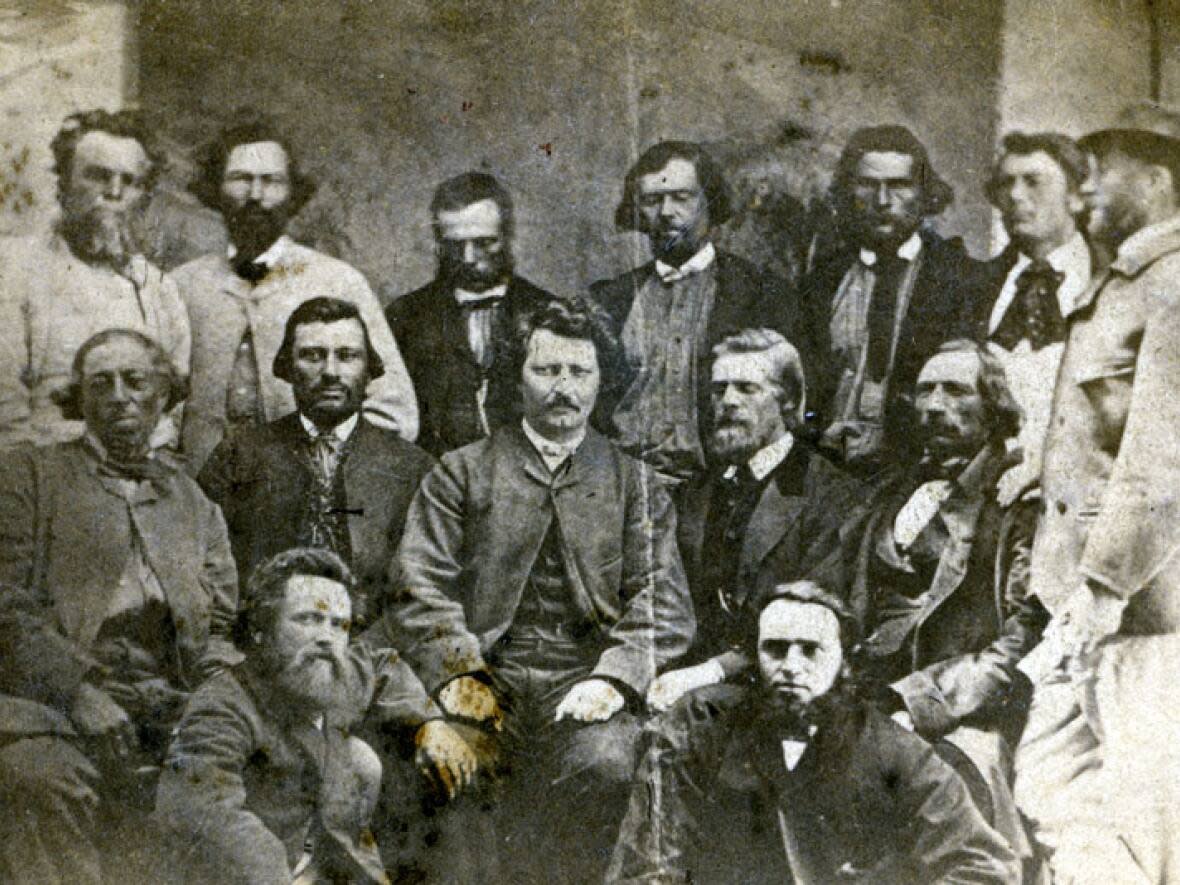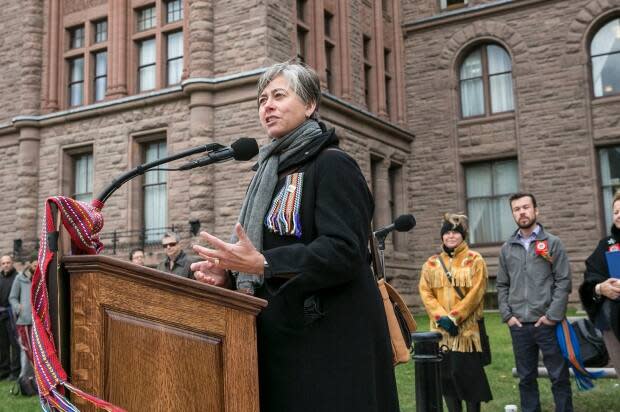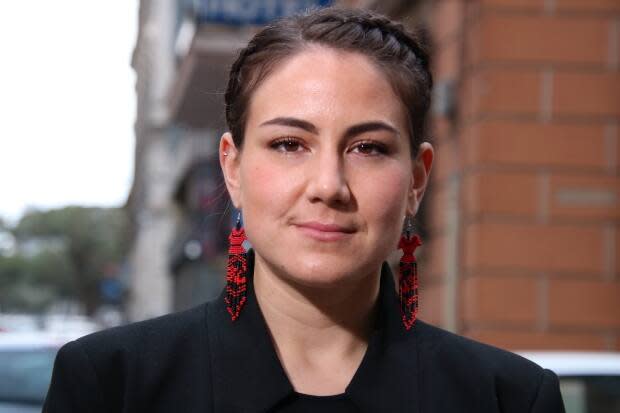Mayor John Tory apologizes to Métis people for Toronto's role in 1885 Northwest Resistance

Mayor John Tory issued an apology to the Métis people for Toronto's role in the 1885 Northwest Resistance, Friday afternoon.
Tory joined Métis leaders at the Annual General Assembly of the Métis Nation of Ontario, held at the Intercontinental Hotel.
Senator Suzanne Brunelle, of the Toronto and York Region Métis Council, was on hand to acknowledge the apology.
"The recognition of the City of Toronto's role in perpetuating racism and colonial violence towards the Métis — which continues to this day — is deeply significant," she said.
"The apology is a big step forward in our relationship with the city."
The Northwest Resistance was a Métis uprising led by Louis Riel that took place at Batoche in what is now Saskatchewan. The Métis, a people descended from both Europeans and Indigenous nations, were fighting for recognition of their ancestral lands.
Soldiers based in Toronto were deployed on behalf of the Canadian government to suppress the rebellion. The city contributed financially to the campaign, organizing and funding a grand parade to celebrate Canada's victory, and later erecting a monument to those who fought against the Métis.
"All of these actions by the city … contributed to the overall milieu of hostility towards the Métis, with the impacts still being felt today," Tory said.

Margaret Froh, president of the Métis Nation of Ontario, thanked the mayor
She attributed the historic milestone to a lot of hard work for those involved, as well as changing attitudes in recent years.
"I think things change when we see each other, when we listen to each other," Froh said. "That is what has occurred over the course of the last decade."
She commended the Toronto and York Region Métis Council for building a relationship with the city that allows them to raise awareness about the local Métis community, their history, and thier culture.
Cassidy Caron, president of the Métis National Council, was also on hand to accept the mayor's apology.

But she also advocated for action beyond words.
"It's also really important to always recognize that apologies are made real through action and atonement," she said.
Caron, also spoke of her own family connection to the battle of Batoche, recognizing what the Métis of 1885 were fighting for.
"The Métis of Batoche petitioned for recognition, for fair treatment, and respect for their land rights," she said.
Moments like this are important because it keeps conversations about Métis history alive, Caron said.
As part of his apology, Tory committed the city to continue working with the Toronto and York Regional Métis council to develop educational programs and commemorative initiatives.
He also noted the city's first Reconciliation Action Plan is set to guide its actions to advance truth, justice and reconciliation for the next 10 years.
The apology can be read in its entirety on the city's website.

 Yahoo Movies
Yahoo Movies 
